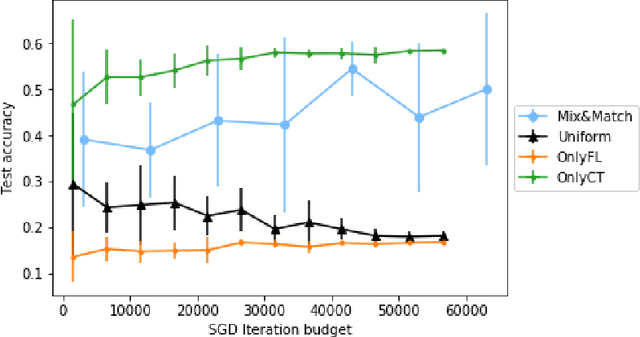Mix and Match: An Optimistic Tree-Search Approach for Learning Models from Mixture Distributions
Paper and Code
Aug 23, 2019



We consider a co-variate shift problem where one has access to several marginally different training datasets for the same learning problem and a small validation set which possibly differs from all the individual training distributions. This co-variate shift is caused, in part, due to unobserved features in the datasets. The objective, then, is to find the best mixture distribution over the training datasets (with only observed features) such that training a learning algorithm using this mixture has the best validation performance. Our proposed algorithm, ${\sf Mix\&Match}$, combines stochastic gradient descent (SGD) with optimistic tree search and model re-use (evolving partially trained models with samples from different mixture distributions) over the space of mixtures, for this task. We prove simple regret guarantees for our algorithm with respect to recovering the optimal mixture, given a total budget of SGD evaluations. Finally, we validate our algorithm on two real-world datasets.
 Add to Chrome
Add to Chrome Add to Firefox
Add to Firefox Add to Edge
Add to Edge